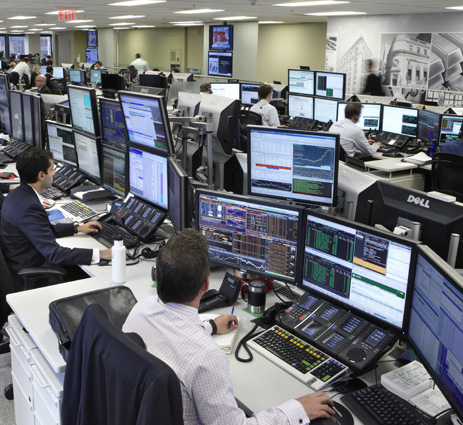Since the announcement of the snap election by Theresa May in April, we have seen a surge upwards across all GBP pairs. This week we saw GBPUSD made a new higher high, reaching 1.3125, the highest its been since the 22nd of September 2016. Structurally and technically GBPUSD remains bullish with no clear sign of a reversal and trend change yet, however there are large list of fundamental factors which could negatively affect the GBP over the next 12 months:
- UK growth has remained relatively slow. Official GDP growth slowed from around 2.5% (annualised) in Q4 to below 1% (annualised) in Q1 and analysts track growth at 1.8% (annualised) in May, having slowed from 3.1% (annualised) in December (Exhibit 2). Investment banks are forecasting GDP growth to remain at or below-trend for the remainder of the year (with Q2 growth forecast at 1.6% annualised).
- Despite a rise in inflation, interest rate policy is expected to remain on hold through this year. Since the MPC policy announcement on June 15, front-end rates have moved higher and the market is now assigning more than a 50% probability that the MPC increases the policy rate at the November 2017 meeting (Exhibit 3). Goldman sachs research division expect the BoE to tighten through credit or ‘macro-prudential’ policy – such as the increase in the Counter-Cyclical Buffer rate on banks’ UK exposure announced by the BoE’s Financial Policy Committee in late June– which will do less to support Sterling than an interest rate rise. The key risk to an earlier rate rise is a further decline in unemployment (especially if combined with a rise in wage growth). Goldman sachs expect the majority of the MPC will put more weight on the deceleration in economic activity than on the rise in inflation driven by a weaker currency. But admittedly a further decline in the unemployment rate would suggest that weaker GDP growth is due more to weak productivity growth, which would weaken the case for keeping rates low.
- The recent General Election has added to Brexit-related uncertainties and resulted in a weaker UK Government. Brexit uncertainties are unlikely to be resolved quickly. Moreover, the Government requires cross-party support in Parliament to make politically sensitive concessions in order to reach a transitional deal with the EU-27 to smooth the UK’s departure from the EU. This means there is an ongoing risk of a Conservative leadership challenge, another general election and a change of Government. The Conservative Party’s conference in the Fall might bring more clarity on these issues. Below is Goldman Sachs forecast of GBP depreciation against G1o currencies over the next 12 months:
